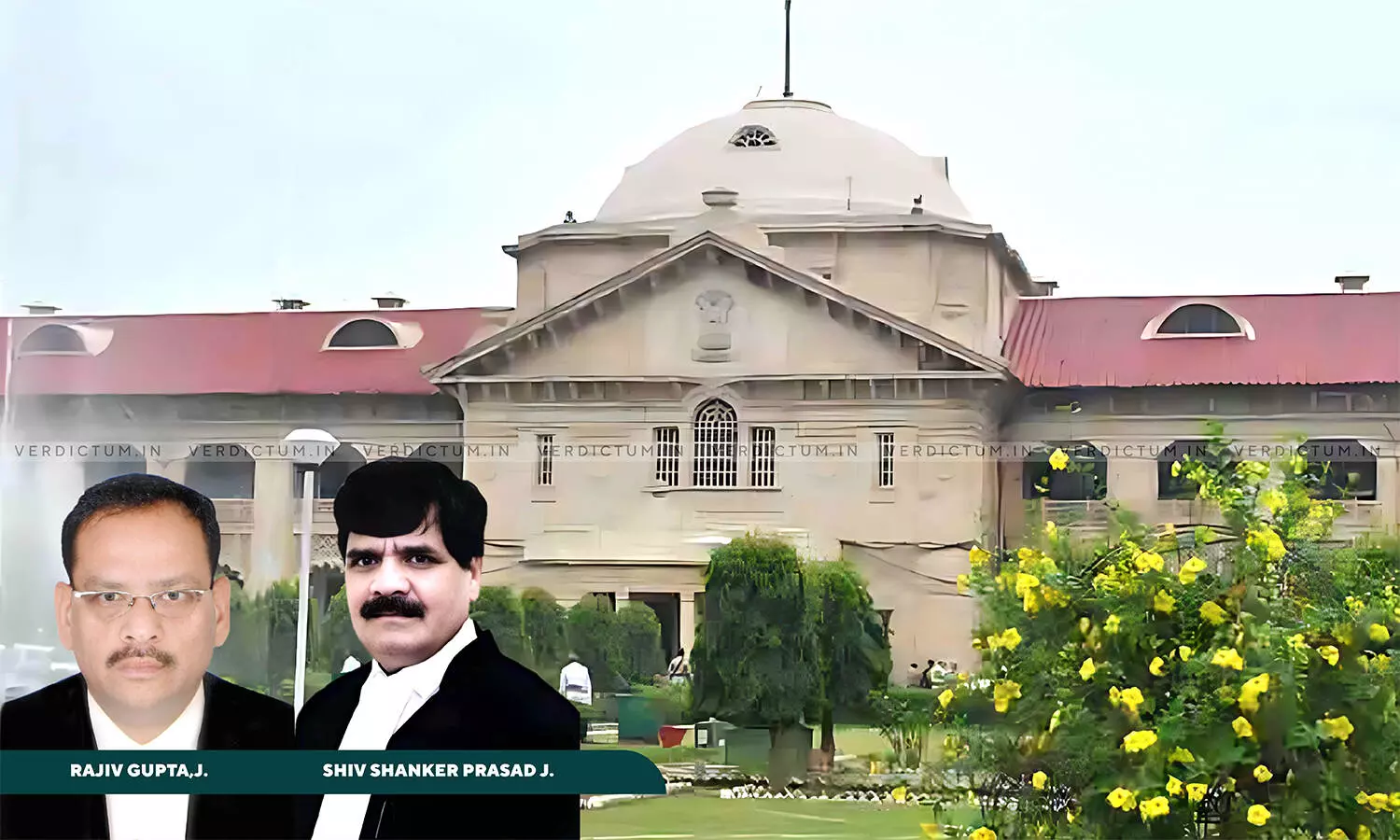
Dying Declaration Procedure Adopted Is Doubtful: Allahabad High Court Acquits Three In 1989 Murder Case
 |
|The Allahabad High Court has acquitted three individuals who were convicted by a lower court for a murder dating back to 1989.
The case originated from an incident in August 1989, when the deceased, accompanied by the complainant and another individual, was allegedly attacked by the appellants due to a prior dispute.
A Division Bench of Justice Rajiv Gupta and Justice Shiv Shanker Prasad overturned the conviction, citing several critical reasons. The Court said, “we are of the view that the court below has not examined the evidence led by the prosecution in correct perspective and the finding returned by it that the prosecution has succeeded in proving its case beyond reasonable doubt cannot be sustained. The prosecution has failed to establish the guilt of the accused-appellants on the basis of evidence led at the stage of trial by the prosecution. The conviction and sentence of accused-appellants is consequently reversed.”
The Court expressed doubts regarding the validity of the dying declaration made by the deceased victim, as it was not recorded in the presence of the deceased himself or his father. This raised suspicions about its authenticity and reliability.
The Court added, “neither the contents of the dying declaration were read out to the injured/deceased nor to the father of the deceased, namely, Jai Sri, who could certify such disclosure, as in his presence such disclosure has been made by the deceased in respect of the person, who has assaulted him. As also the father of the deceased certifying such disclosure of the deceased, was not produced during the course of trial so that the defence could have an opportunity to cross-examine such disclosure”
Advocate Jagdish Singh Sengar appeared for the Appellants and Advocate M Sarwar Khan appeared for the Respondent.
Furthermore, the Court noted an unexplained delay in filing the First Information Report (FIR) against the accused persons, which cast additional doubts on the prosecution's version of events. The clarity regarding the location where the deceased succumbed to his injuries was also questioned, as inconsistencies emerged in witness testimonies.
The Court emphasized that the trial court had not assessed the prosecution evidence correctly. It concluded that the prosecution failed to establish the guilt of the accused beyond a reasonable doubt based on the evidence presented during trial.
Consequently, the Allahabad High Court overturned the convictions under Sections 148, 149, and 302 of the Indian Penal Code and acquitted the accused persons, ruling that the benefit of doubt must favor the appellants in light of the uncertainties and inconsistencies surrounding the case.
Cause Title: Jwala Prasad & Ors. v. State of Uttar Pradesh, [2024:AHC:107281-DB]
Appearance:
Appellants: Advocates Jagdish Singh Sengar, Babu Lal Ram, and Ram Babu Sharma
Respondent: Advocates M Sarwar Khan, Rajesh Yadav, Ram Ji Yadav, and Vineet Kumar Yadav
Click here to read/download Order